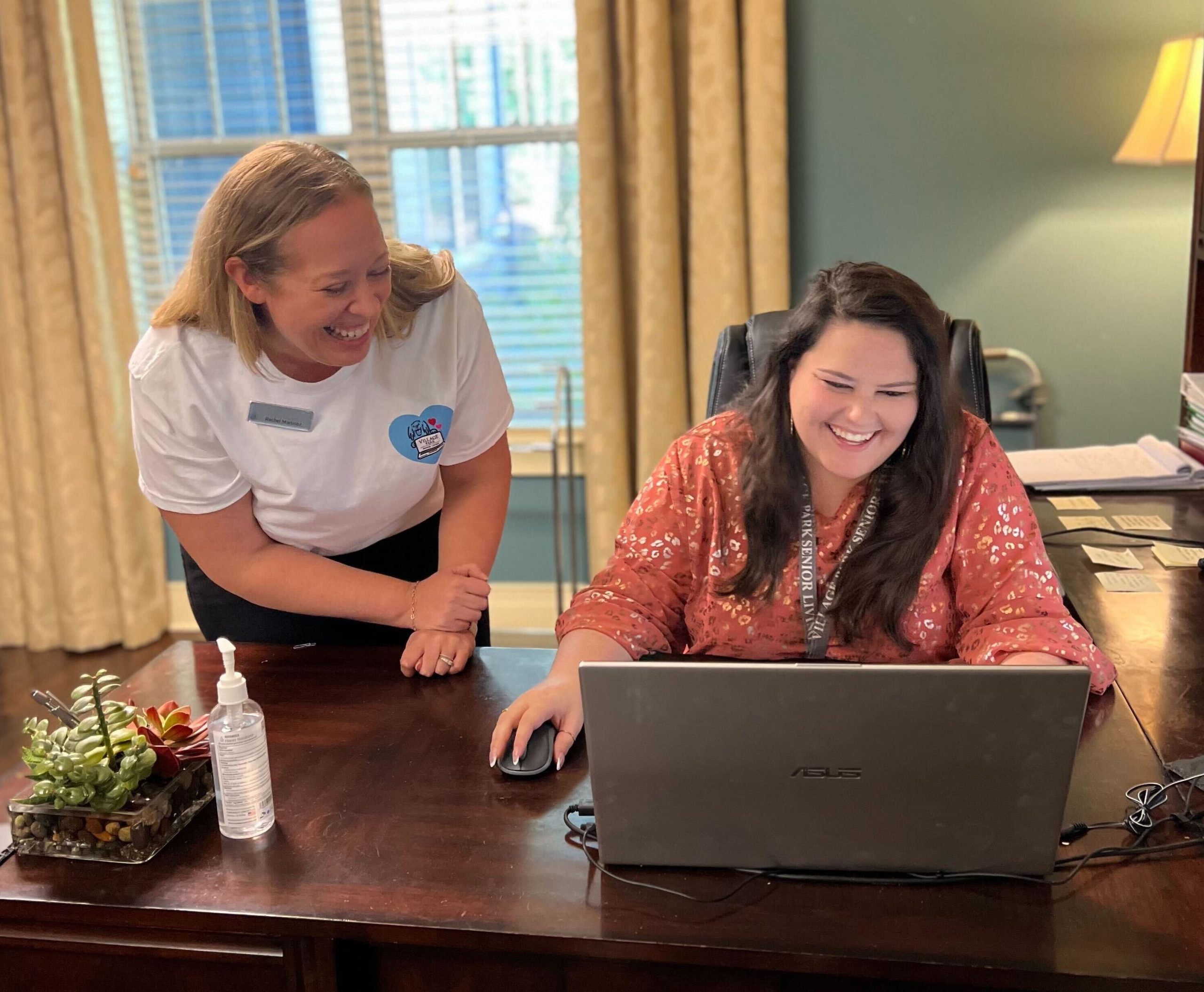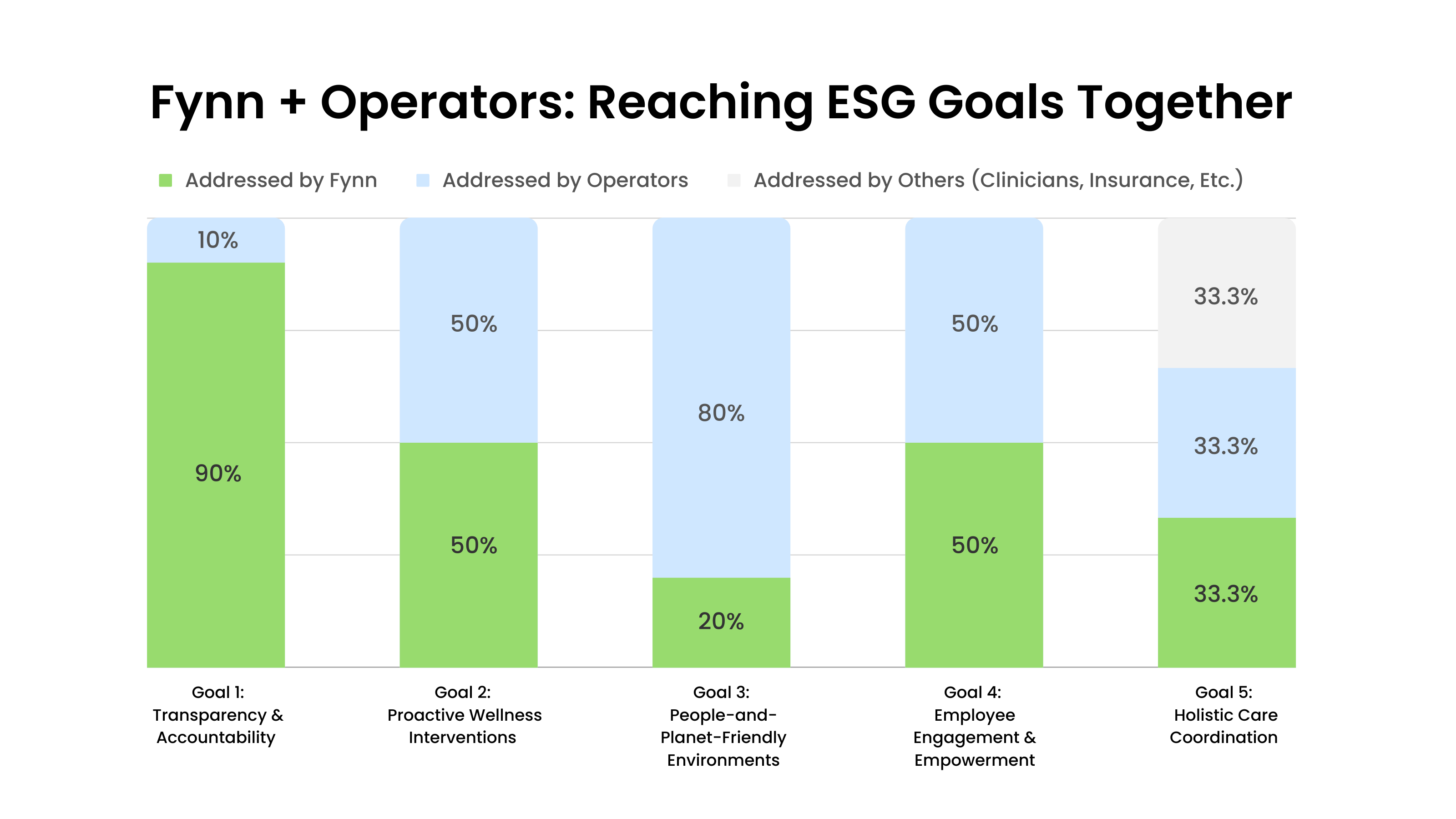In our previous article, “America’s Boomers Need Health Sustainability…But How?”, we explored the importance of creating Health Sustainability for seniors and future generations.
But as the complexity of daily operations increases to meet growing care and lifestyle demands, why should operators take the time to think about their impact beyond financials and C-SAT scores?
Based on market trends and increasing regulations, your funding, NOI, and future may depend on it.
Here are 5 reasons experts recommend including ESG initiatives in your strategic plan:
1. Critical To Securing Future Funding
Bloomberg Intelligence projects sustainable investing will continue to grow to $50 trillion by 2025. As capital markets increasingly emphasize environmental and social responsibility, they’re seeking to invest in companies with a shared commitment to ESG goals. Evidence of this trend in senior housing can be found everywhere from NIC’s 2022 Conference Main Stage Topics to Welltower’s 2021 ESG Report.
LTC Properties, a publicly traded senior housing REIT, is currently updating its underwriting standards to account for environmental and social responsibility. Like other sustainability-focused leaders such as Welltower and Ventas, LTC sees ESG criteria as a growing determining factor in its selection of future partners.
“ESG is becoming a critical piece of our partnership strategy,” said Mandi Hogan, Vice President of Marketing and ESG. “Commitment to these ethical guidelines will grow to become a focus in our selection criteria for new operators, and we expect technology to play a large role in standardizing and documenting these practices.”
In other words, standing out to capital markets in the future means you need to step up environmentally and socially responsible business practices.
Here’s how Fynn will help you get there:
- Improved NOI via lower total cost of ownership due to improved operational efficiencies, higher occupancy, and lower turnover
- Demonstrated value-alignment with transparent and accurate reporting of business environmental and social impact
2. Increase Long-Term Value Creation
Despite concerns over the added costs of ESG initiatives, LTC Properties’ findings demonstrate that dedicating capital toward ESG initiatives is well worth the cost.
“Adopting ESG initiatives reduces operating costs and opens the door to better financing incentives,” Hogan said. “While moving toward greener energy or starting social programs requires an initial investment, it pays off in the long run.”
Investing in proactive care programs in engaging, dignified social environments is an investment into a) increased resident and family satisfaction, retention, and customer lifetime value. This helps stabilize occupancy, reduce your marketing and onboarding costs, and drive market demand based on positive word-of-mouth.
Here’s how Fynn helps you create value:
- Higher occupancy through improved customer satisfaction and retention
- Improved revenue recognition via earlier notification of changing resident acuity
- Better cost forecasting through resident, employee, and asset trends, alerting operators of potential risks
- Lower total cost of ownership via a holistic operational platform
3. Reduce The Cost And Burdens Of Care
In addition to creating added value for residents and families, ESG initiatives assist in reducing a variety of costs and risks.
Stanford Medicine and MIT AgeLab, among others, see technology as a key to advancing proactive wellness interventions that mitigate costly acute incidents—costs that burden both the individual and the already overwhelmed healthcare system. Advancements in AI, wearables, robotics, and other health technologies enable senior living to improve care quality and efficiencies. Efficiencies reduce waste and allow for better allocation of community natural, human, and capital resources. It’s a win, win, win for people, the planet, and profit.
Here’s how Fynn is helping you drive efficient and effective care:
- Enablement of cost-saving proactive interventional strategies between owners, operators, care teams, and families via transparency of real-time data
- Lower total cost of ownership via a holistic operational platform
- Seamless care coordination through third-party integrations, real-time long-term data collection, and system-directed task management
4. Improve Staff Engagement, Retention, And Efficiency
Employers expect staff to work for them, but are employers working for their staff? The American Healthcare Association and National Center for Assisted Living reported:
This time last year, 96% of assisted living communities faced staffing shortages and 7/10 said they were struggling to hire new staff.
Employee engagement and retention, as well as the costs associated with turnover and agency staffing, remain top of mind for owners, operators, and families. As the aging Baby Boomer generation’s long-term care needs rise, the care labor market will continue to grow more competitive. Implementing employee education and rewards programs, innovating to help fewer employees work more efficiently, and promoting diversity, equity, and inclusion are key to long-term success.
Here’s how Fynn employs gamification and workload balancing to engage your team:
- Improved staff retention via gamification and intelligent scheduling
- Increased staff efficiency through system-directed task management and streamlined user interface
- Better workload balancing and accurate billing via earlier notification of changing resident acuity
5. Ensure Transparency And Accountability
need for better transparency and accountability in senior care comes straight from the top. The White House issued a briefing earlier this year scrutinizing everything from COVID response to staffing issues to ownership transparency. In the brief, the Biden Administration with the Department of Health and Human Services (HHS) announced reforms aimed to:
“…improve the safety and quality of nursing home care, hold nursing homes accountable for the care they provide, and make the quality of care and facility ownership more transparent…”
While these current initiatives are focused on skilled nursing facilities, the entire long-term care industry needs to take a proactive approach to avoid further scrutiny
Here’s how Fynn helps you proactively mitigate risks and build trust across stakeholders:
- Transparency and accountability across all stakeholders through timely and accurate reporting
- Improved communication with families via a user-friendly family app giving peace of mind
- Increased goodwill and trust among the larger community by demonstrating a commitment to positively improving the lives of seniors and those who care for them
By adopting socially responsible initiatives set forth by ESG criteria, senior living has the opportunity to shift from a reactive care lagger into a sustainable health leader. In our next article, we’ll dive into 5 ESG initiatives sustainability experts recommend senior living leaders address.
Worth-The-Read:
- What is ESG Investing?An overview of how investors are considering environmental, social, and governance (ESG) criteria in their analysis
- Eden Alternative CEO Challenges Senior Living to Embrace Disruption President and CEO of The Eden Alternative, Patrick Bultema, embraces disruption and tech as a key way to provide better care with seniors
- Nordic Region Rolls Out World’s First Unified Digital Health Standards – Working to be the most integrated health region in the world by 2030, the Nordic Digital Health and Evaluation Criteria (NordDEC) program unifies digital health standards across multiple countries, delivering safe digital health across Sweden, Denmark, Norway, Finland, and Iceland












